Can a Boxer Eat Bacon?
Date Published: February 12, 2024 | Last Modified: February 16, 2024
Before we dive into the sizzling details, let's set the record straight - boxers are indeed able to enjoy Bacon. In this article, we will explore the potential health benefits of incorporating Bacon into a boxer's diet, weigh the pros and cons of this indulgence, address any safety concerns that may arise, clarify whether it is toxic for them, and ultimately determine if Bacon can be a good addition to their meals. So, if you've ever wondered about treating your furry friend to some Bacon, sit back and let's unravel the mystery together.
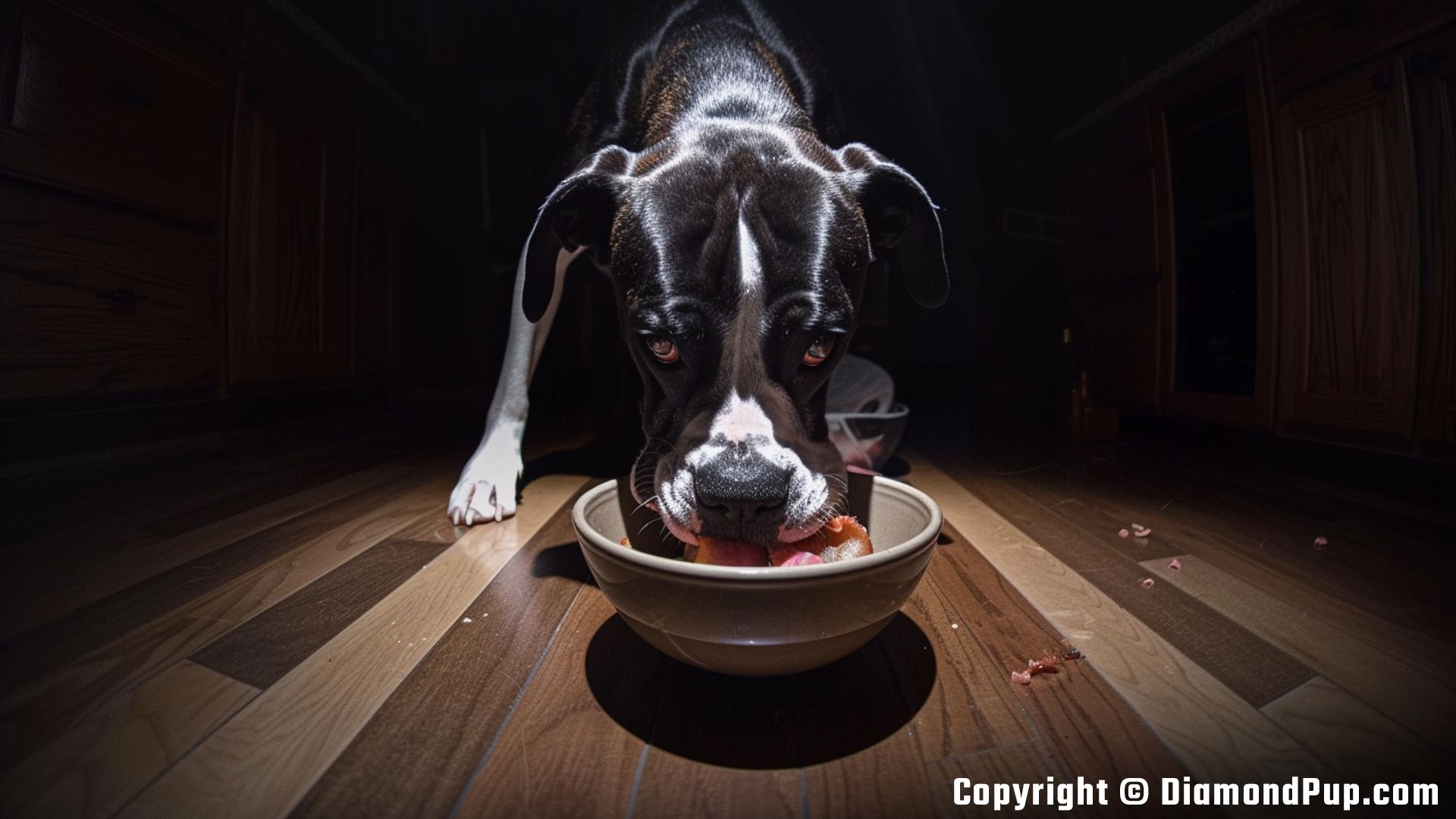
Are Bacons Good for Boxers?
When it comes to feeding Boxers, Bacon can be a good addition to their diet if given in moderation. Boxers are active dogs with high energy levels, and the protein and fat content in Bacon can provide them with the extra boost they need to sustain their activity levels. However, it is important to remember that Bacon should not make up the bulk of their diet. Instead, it should be considered more of an occasional treat or topping to their regular balanced meals.
It's crucial to choose high-quality Bacon that is low in sodium and free from any seasonings or additives that may be harmful to your Boxer. Additionally, it's best to cook the Bacon thoroughly to ensure that it is easily digestible for your furry friend. Always consult with your veterinarian before making any significant changes to your Boxer's diet to ensure that they are getting the proper nutrition they need to stay healthy and happy.
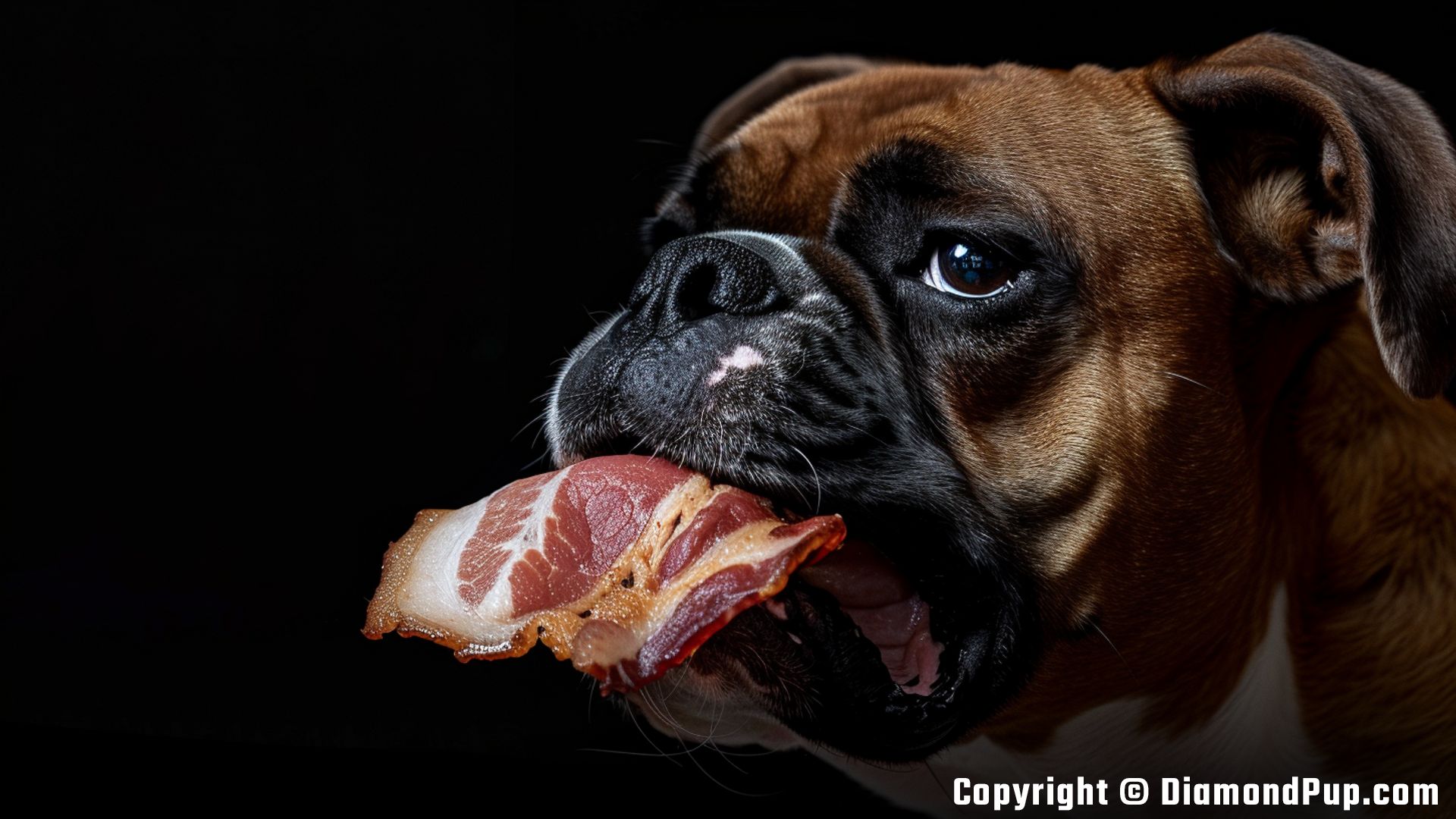
Understanding the Benefits of Bacons for Boxers
Boxers can benefit from the inclusion of Bacon in their diet due to its high protein content. Protein is essential for muscle development, repair, and overall good health in dogs, especially in a muscular breed like the Boxer. Additionally, Bacon can provide important amino acids that are the building blocks of protein, supporting your Boxer's energy levels and immune system.
Moreover, Bacon can be a tasty and appealing treat for your Boxer, making mealtime more enjoyable and helping with picky eaters. However, it's important to remember that Bacon should only be given to your Boxer in moderation, as the high salt and fat content can lead to health issues such as obesity, pancreatitis, and sodium ion poisoning. Always consult with your veterinarian before making significant changes to your Boxer's diet to ensure it aligns with their specific health needs.
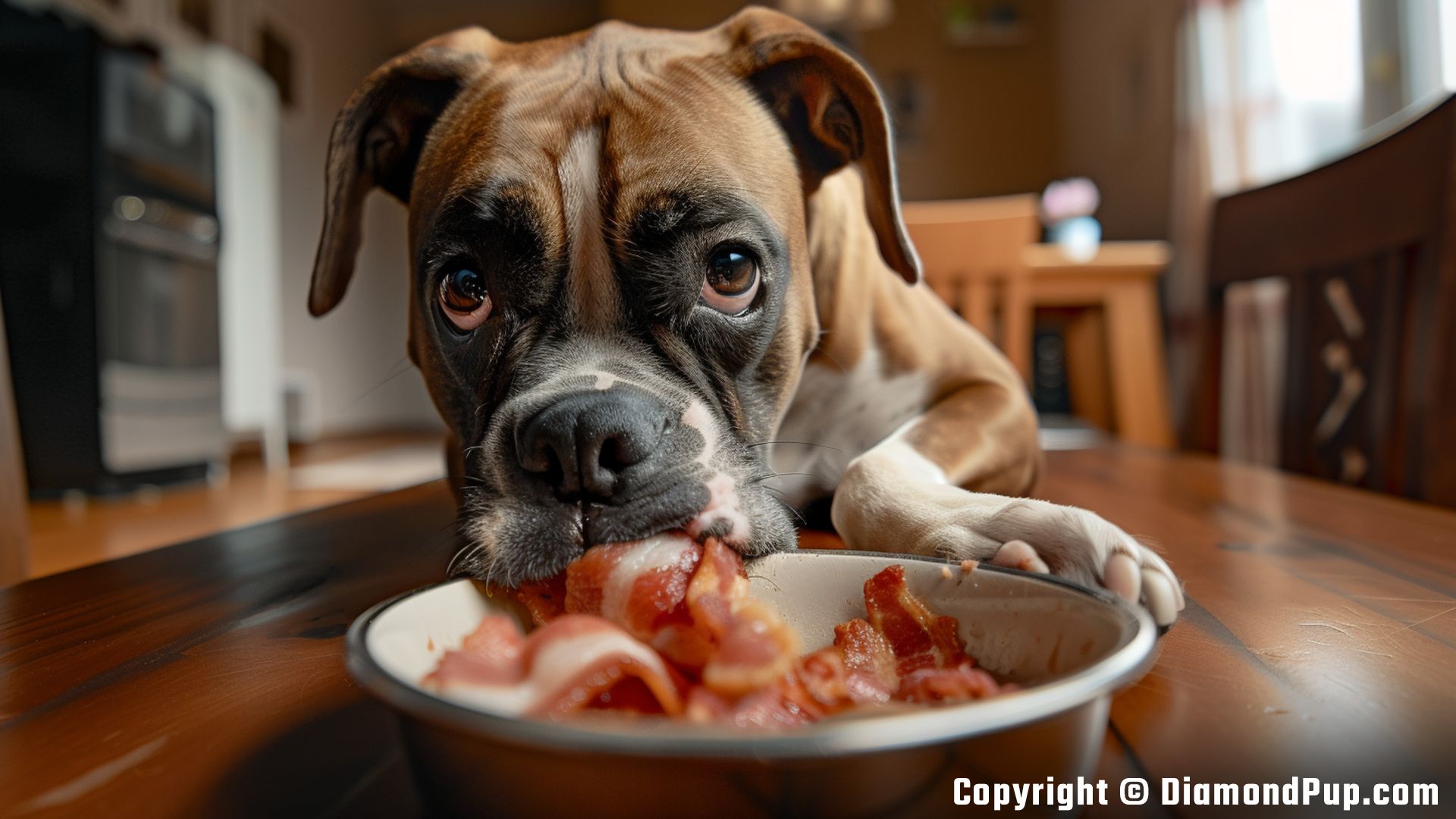
Nutritional benefits of Bacons for Boxers
When it comes to the nutritional benefits of Bacons for Boxers, it's important to note that while bacon is a tasty treat for your Boxer, it should only be given in moderation. Bacon is high in fat and sodium, which can lead to obesity and heart issues if consumed in excess. Are blueberries good for boxers? People also ask about healthier alternatives and the benefits associated fruits might have. However, in small quantities as an occasional treat, bacon can provide a good source of protein and healthy fats for your Boxer. Just be sure to trim off any excess fat and opt for low-sodium varieties to minimize the negative impact on your furry friend's health.
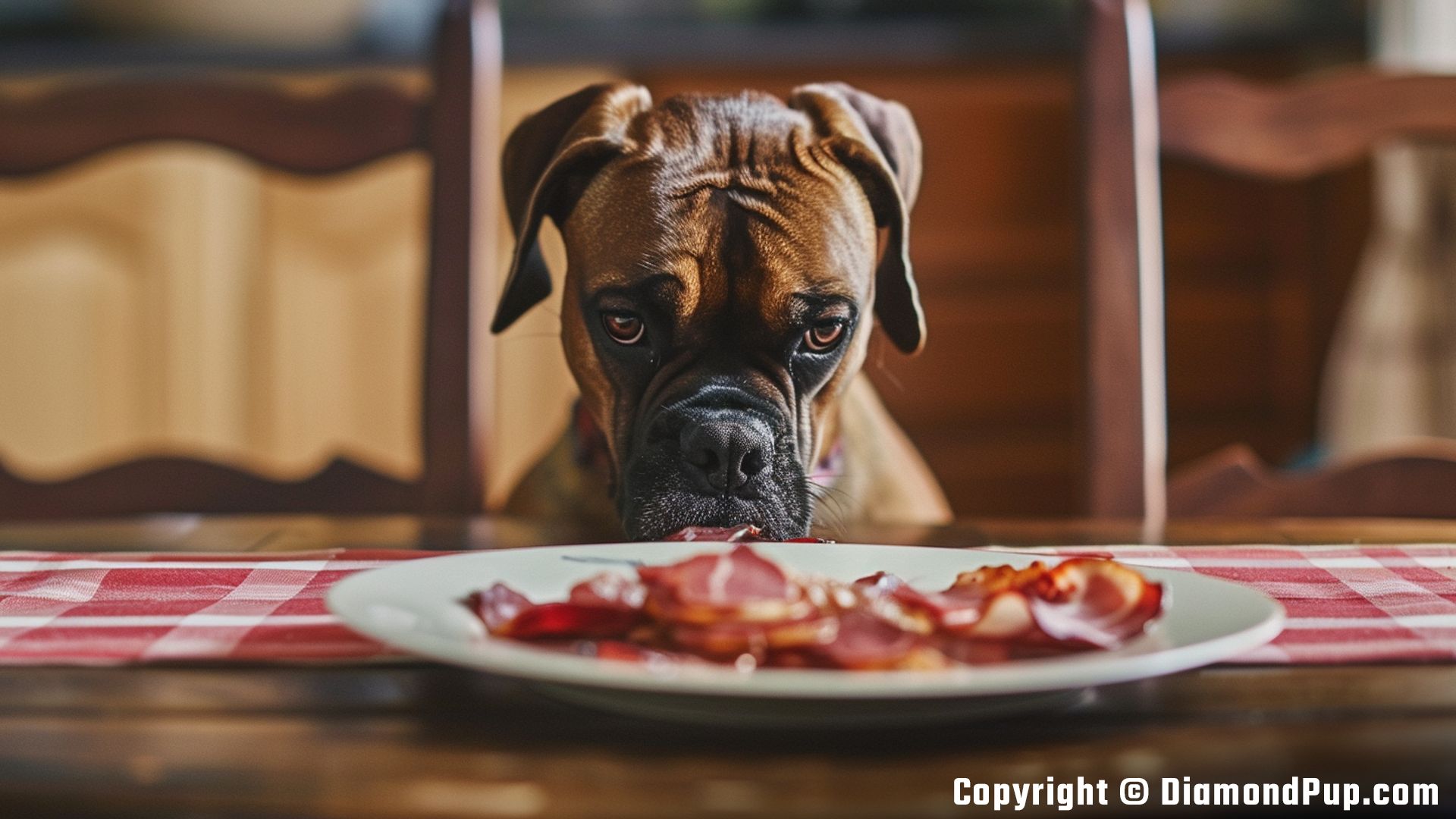
Safely Introducing Bacons to Your Dog's Diet
When introducing Bacon to your Boxer's diet, it is important to do so gradually to avoid any digestive upsets. Start by offering small amounts of cooked, lean bacon as a treat or a topper on their regular food. Monitor your Boxer for any signs of gastrointestinal distress such as vomiting or diarrhea. Additionally, it is crucial to ensure that the Bacon is cooked thoroughly to eliminate any harmful bacteria that could make your pup sick.
Another aspect to consider is the salt content in Bacon, as excessive salt intake can lead to dehydration and other health issues in dogs. Opt for low-sodium Bacon or rinse off any excess salt before giving it to your Boxer. Remember that Bacon should only be given in moderation as a special treat due to its high-fat content, which can contribute to obesity and pancreatitis if consumed in large quantities over time.
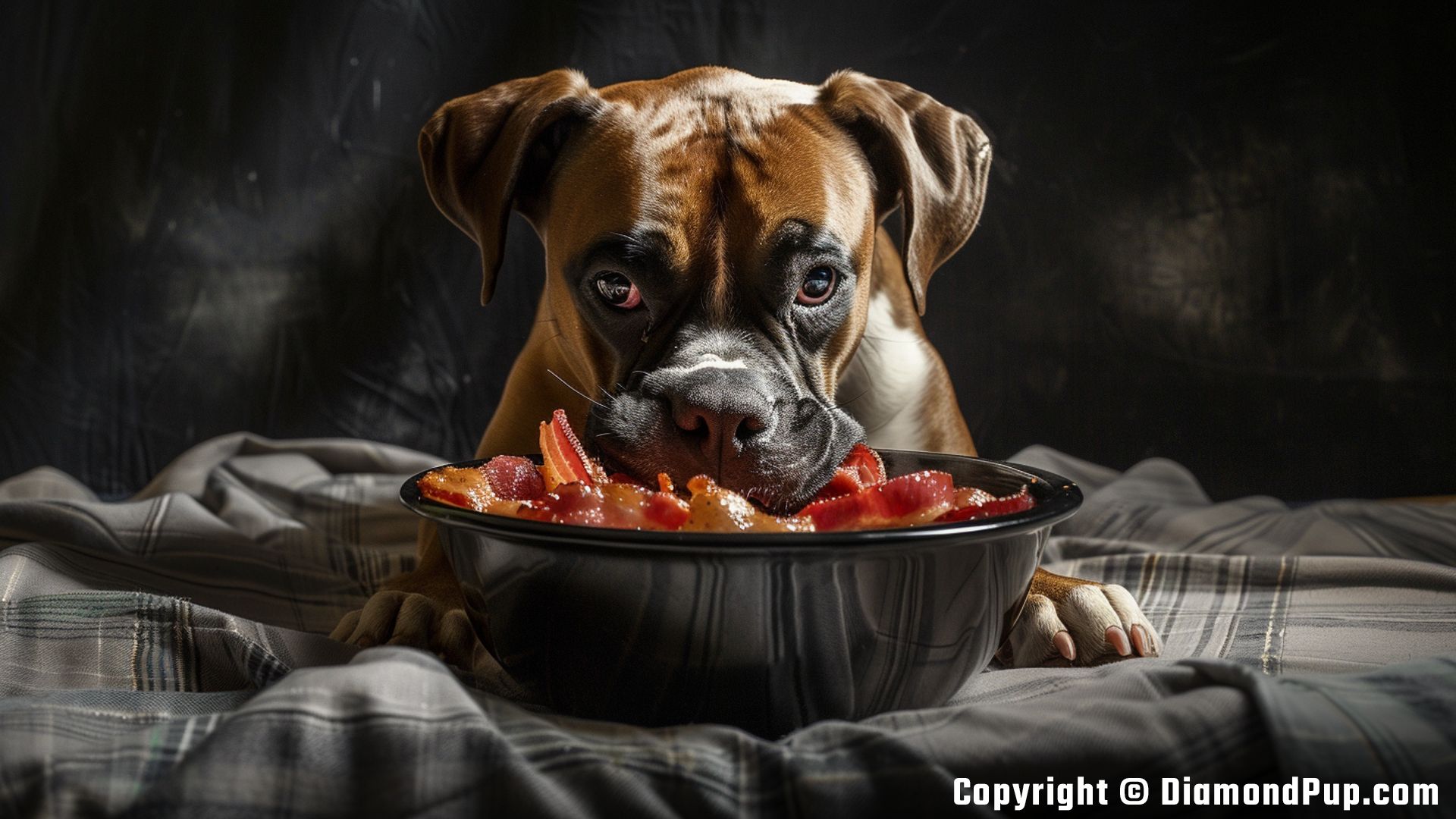
How much bacon can a dog eat safely?
When it comes to feeding your Boxer bacon, moderation is key. While bacon can be a tasty treat for your furry friend, it is important to remember that it is high in saturated fats and salt, which can lead to health issues if consumed in excess. As a general guideline, bacon should only make up a small portion of your dog's overall diet. It is recommended to limit the amount of bacon given to your Boxer to a small piece as an occasional indulgence rather than a regular part of their meals.
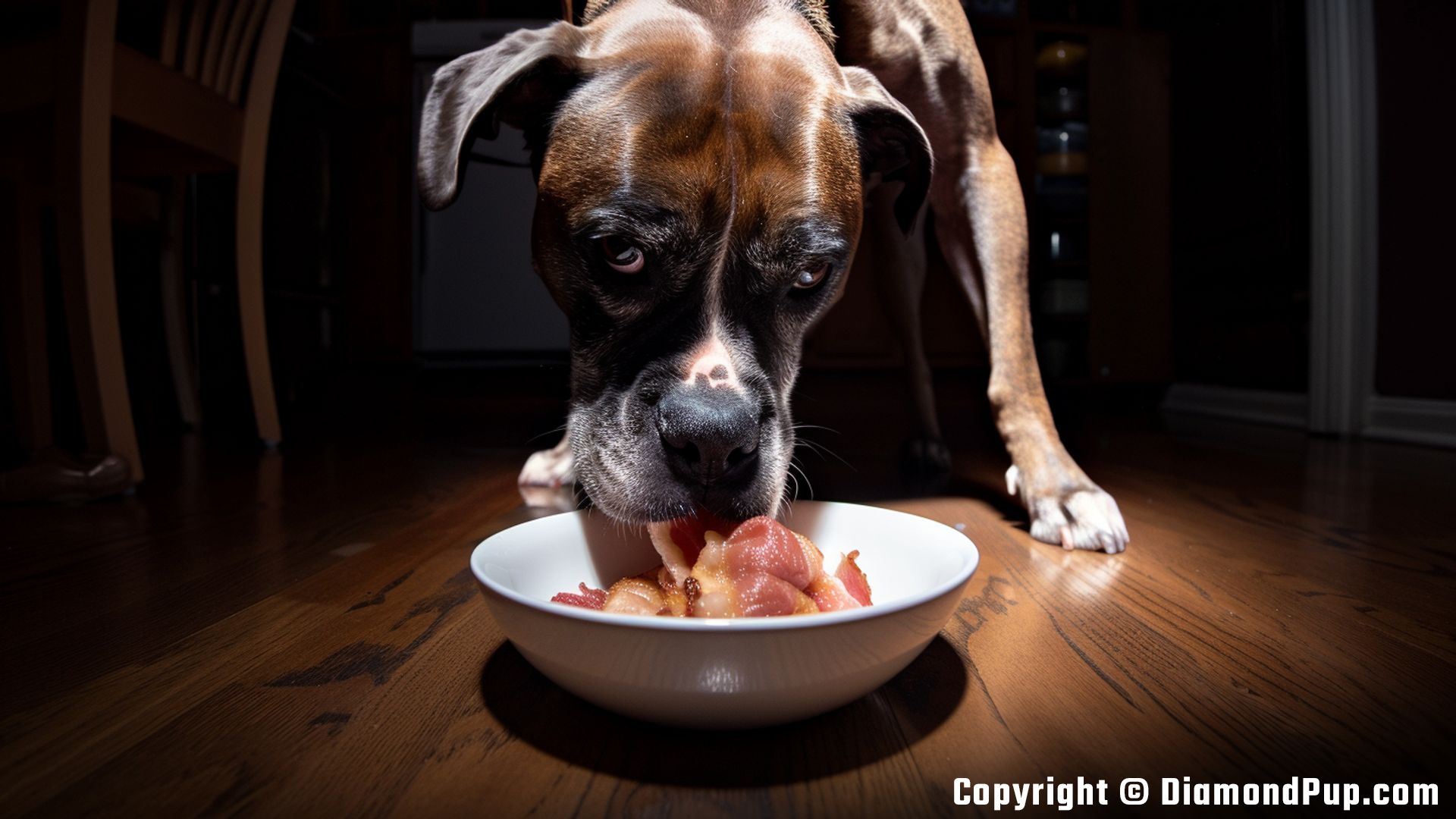
Tips to Remember When Feeding Your Dog Bacons
When feeding your Boxer bacon, it's crucial to remember that moderation is key. While bacon can be a tasty treat, it should not make up a significant portion of their diet due to its high fat and salt content. Excessive consumption of bacon can lead to obesity, pancreatitis, and other health issues. Therefore, it's best to offer bacon as an occasional indulgence rather than a regular meal replacement.
Additionally, when choosing bacon for your Boxer, opt for lean cuts and avoid those that are heavily processed or seasoned. Natural, nitrate-free bacon is a safer choice for your furry friend. Always ensure that the bacon is cooked thoroughly to avoid any potential risks of bacterial contamination. By keeping these tips in mind, you can safely treat your Boxer to a delicious bacon snack without compromising their health.
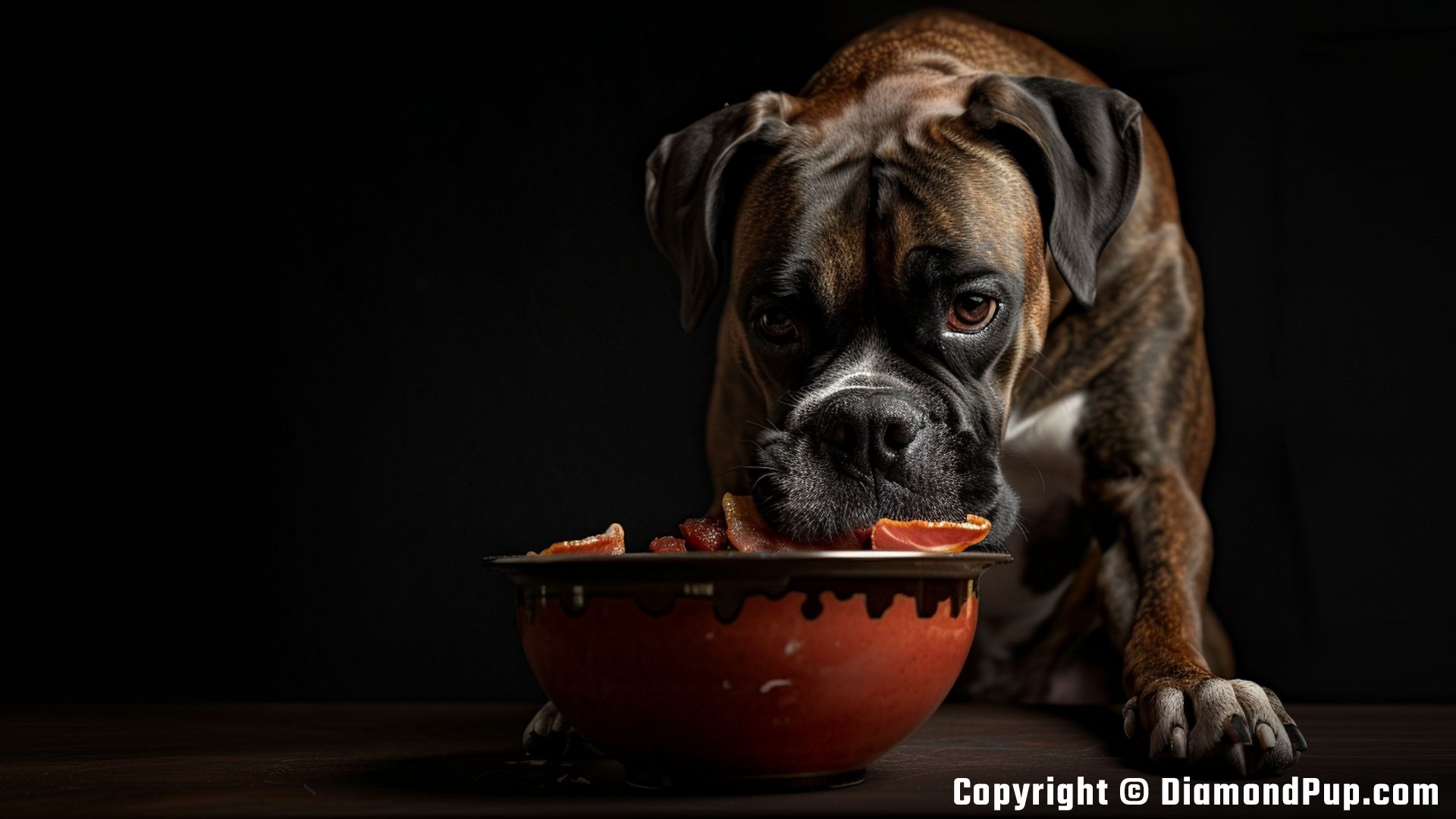
Feeding Your Dog Bacons
When it comes to feeding your boxer bacon, it's important to remember that moderation is key. While bacon can be a tasty treat for your furry friend, it should not make up a significant portion of their diet. Boxers are prone to certain health issues such as obesity and gastrointestinal sensitivities, so it's best to offer bacon as an occasional snack rather than a daily staple.
When choosing bacon for your boxer, opt for leaner cuts with minimal additives such as preservatives or excessive salt. It's also important to cook the bacon thoroughly to avoid any potential risks of contamination. Always remember to consult with your veterinarian before making any significant changes to your dog's diet, including incorporating bacon into their meals.

How to properly feed your dog Bacons
When feeding your Boxer Bacon, it's crucial to do so in moderation. Bacon should not be a regular part of their diet, as it is high in fat and salt, which can lead to obesity and other health issues over time. It's best to offer small pieces of cooked, unseasoned Bacon as an occasional treat rather than a daily meal. Additionally, make sure to trim off any excess fat to reduce the risk of digestive upset.
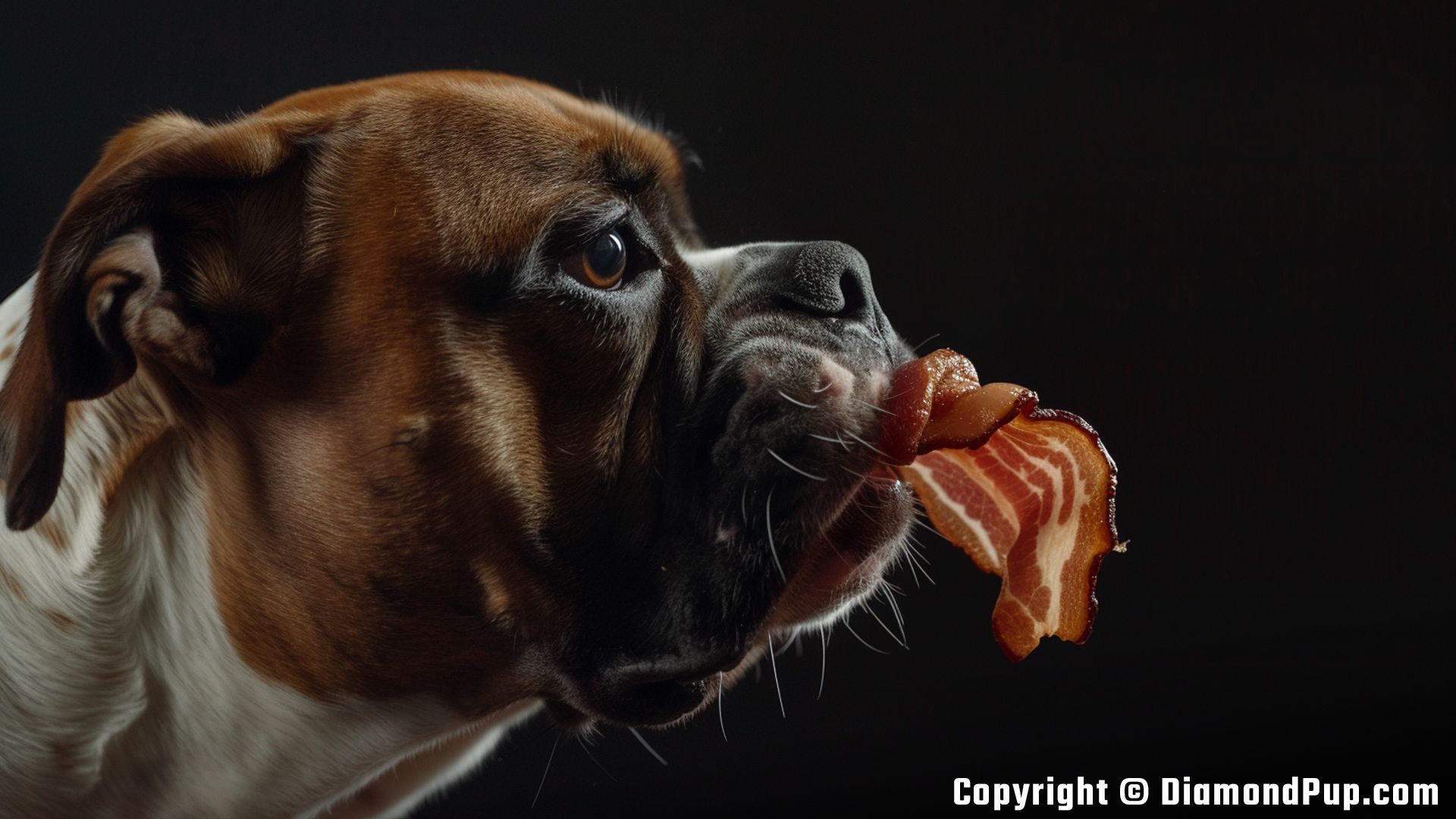
Do Boxers Like Bacons?
Boxers are known for their enthusiastic and sometimes goofy personality, which often translates into a love for food. Bacon, with its rich and savory aroma, can be an irresistible treat for many boxers. The strong scent and flavor of bacon can quickly grab their attention and have them drooling in anticipation.
However, it is essential to remember that while boxers may absolutely enjoy the taste of bacon, it should only be given to them in moderation. Too much bacon can lead to gastrointestinal upset, pancreatitis, and obesity in boxers, which can have serious health consequences. So, it's best to reserve bacon as an occasional indulgence or as a special reward during training sessions rather than a regular part of their diet.
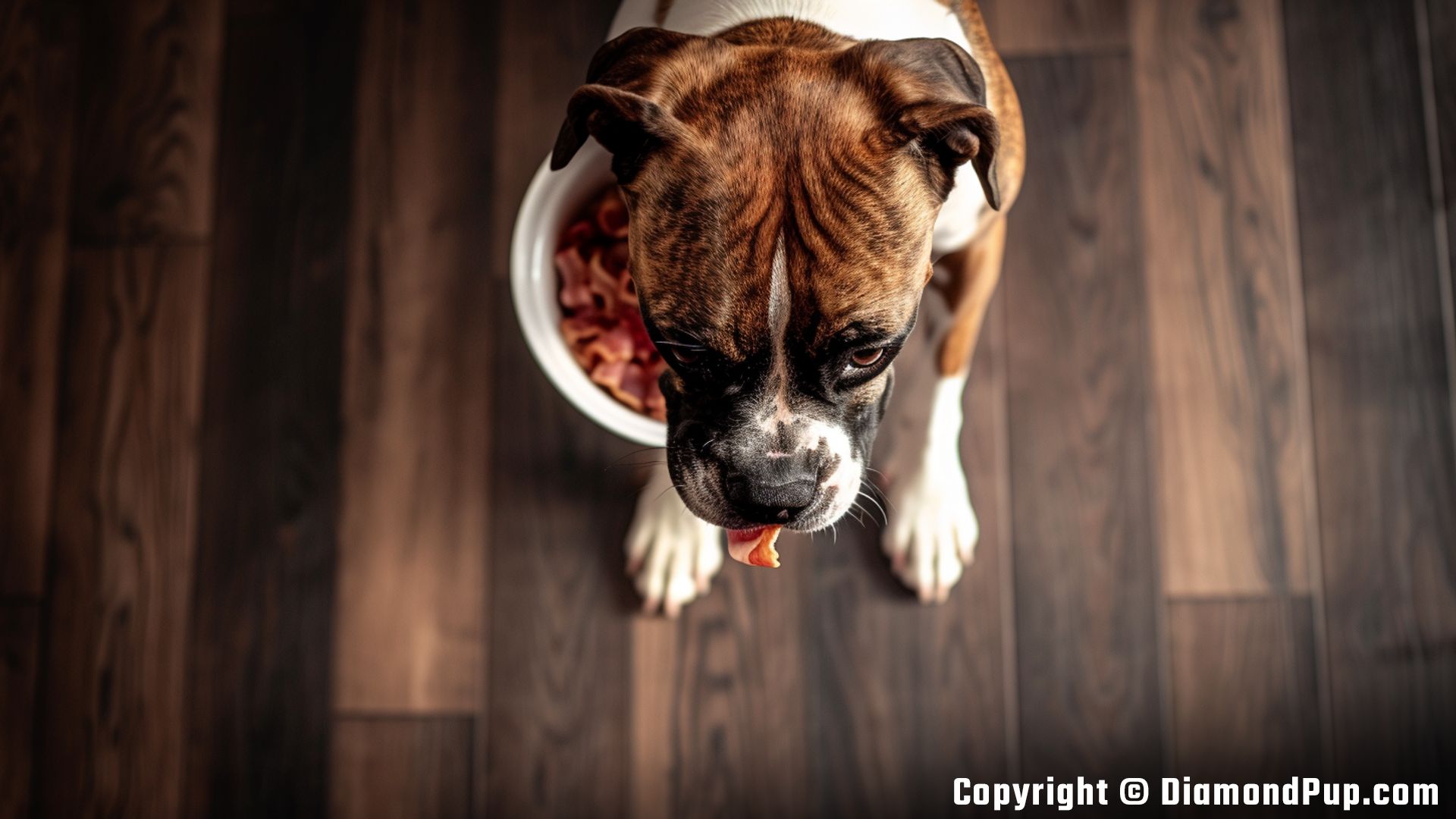
Special Consideration for Boxers
Boxers are a breed known for their muscular build and high energy levels. Due to their active nature, it is essential to provide them with a balanced diet that meets their unique nutritional requirements. When considering feeding your Boxer bacon, it is important to remember that this indulgence should be given in moderation to prevent any potential digestive issues or weight gain.
Additionally, Boxers are prone to certain health conditions, such as heart problems and gastrointestinal sensitivities. Therefore, it is crucial to consult with your veterinarian before incorporating bacon into their diet to ensure it does not exacerbate any existing health issues. By keeping a close eye on their overall well-being and adjusting their diet accordingly, you can ensure that your Boxer remains happy, healthy, and thriving.
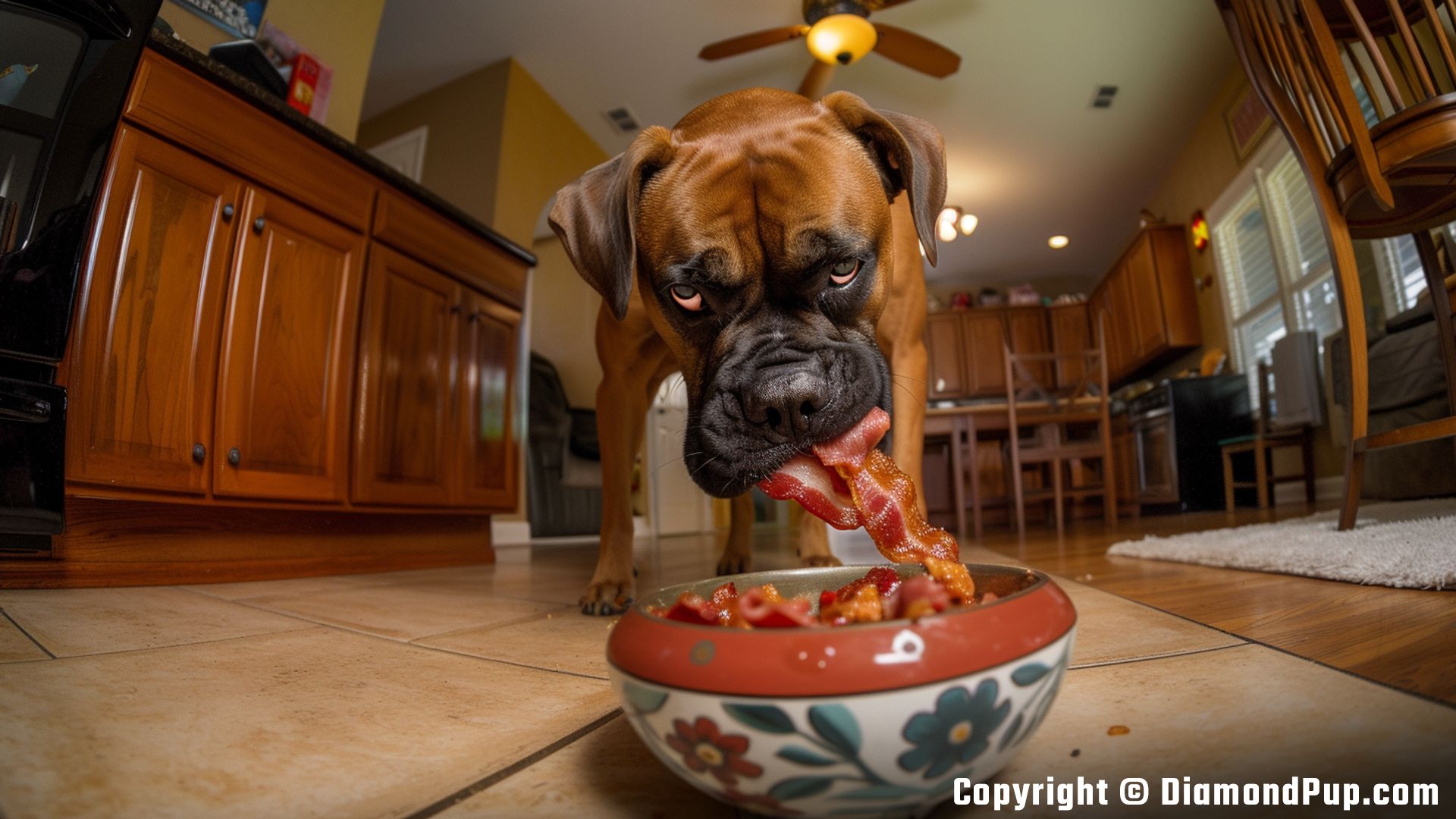
Can Puppies Have Bacons?
When it comes to feeding bacon to Boxer puppies, it is crucial to exercise caution. While the occasional small piece of lean, cooked bacon as a special treat may not necessarily harm your puppy, it is important not to make it a regular part of their diet. Boxer puppies have sensitive stomachs, and the high fat content of bacon can lead to digestive issues such as diarrhea or pancreatitis. Additionally, bacon is often high in sodium and preservatives, which can be harmful to a puppy's developing kidneys. For optimal growth and development, it is best to stick to a well-balanced puppy food specifically formulated for Boxers.
As a responsible pet owner, it's essential to prioritize your Boxer puppy's nutritional needs over their cravings for bacon. Consult with your veterinarian to create a suitable diet plan tailored to your puppy's individual requirements. Remember, a healthy and happy Boxer puppy is worth more than a momentary bacon indulgence.
Are there any Boxers that shouldn't eat Bacons?
While boxers, in general, can enjoy Bacon as a tasty treat, there are certain individuals within the breed that may need to avoid it. Boxers with a history of pancreatitis or those prone to gastrointestinal sensitivities may not tolerate the high-fat content of Bacon very well. Additionally, boxers with obesity issues or diabetes should have their Bacon intake closely monitored, if not restricted, due to the caloric density and potential impact on their health.
As always, it is crucial to consult with your veterinarian before making any significant changes to your boxer's diet, including introducing Bacon. They can provide personalized advice based on your dog's specific health needs and dietary requirements to ensure that they stay happy, healthy, and thriving.
Recipes for Feeding Your Dog Bacons
When it comes to feeding your Boxer bacon, it's crucial to opt for lean, unsalted bacon to minimize the fat and sodium content. Excessive fat intake can lead to obesity and pancreatitis in dogs, while high levels of sodium can contribute to conditions like hypertension and dehydration. Additionally, make sure the bacon is cooked thoroughly to eliminate any harmful bacteria that could potentially cause digestive issues. It's best to offer bacon as an occasional treat rather than a regular part of their diet to prevent any adverse health effects.
Another important aspect to consider is portion control. Boxers have a tendency to overeat, so it's essential to monitor the amount of bacon you give them to prevent weight gain and other health issues. A suitable portion size for a Boxer would be about 1-2 small slices of cooked bacon, chopped into small pieces as a flavorful addition to their regular meals. By following these guidelines, you can safely incorporate bacon into your Boxer's diet as an occasional indulgence.
Alternatives to Bacons for Boxers
While Bacon can be a tasty treat for your Boxer, it's important to remember that it should only be given in moderation. If you're looking for healthier alternatives, consider incorporating lean meats such as chicken or turkey into their diet. These options are lower in fat and sodium compared to Bacon, making them a better choice for your Boxer's overall health. People also ask about is it safe for a boxer to eat chicken; indeed, it is, when served in appropriate amounts. Additionally, you can also incorporate fruits and vegetables like blueberries, carrots, and green beans as nutritious and low-calorie snacks for your furry friend.
Common Questions About Boxers and Bacons
One common question that arises when it comes to feeding boxers bacon is whether it is safe for them to consume. Bacon can be high in fat content and salt, both of which can be harmful to a boxer's health in excess. It is crucial to feed bacon to your boxer in moderation and ensure it is cooked thoroughly to reduce the risk of any foodborne illnesses. Additionally, it is recommended to opt for leaner cuts of bacon and trim off any visible fat before feeding it to your furry friend. Can a French bulldog eat bacon
Subscribe Now
Stay updated with the latest news and articles! We'll keep you updated on the latest tips for your pet Boxer
